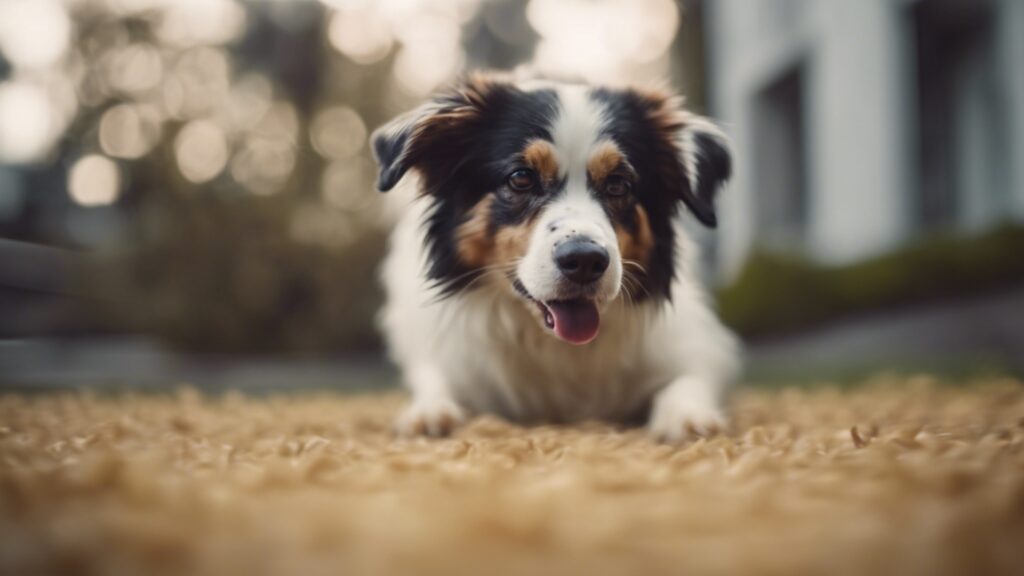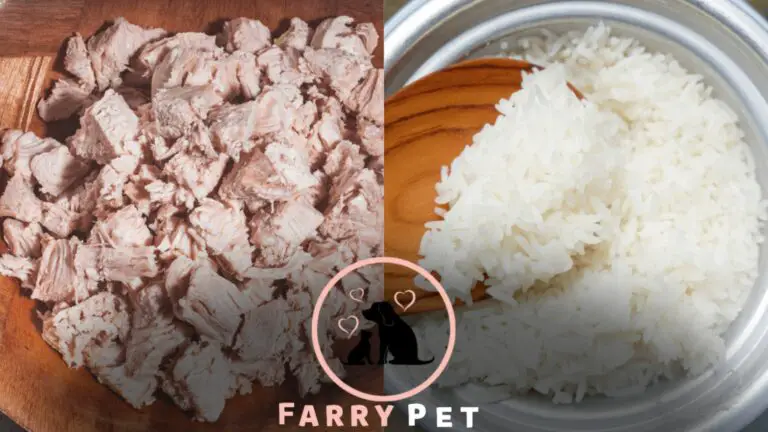
A dog typically poops within 12-24 hours after eating chicken and rice. Incorporating chicken and rice into a dog’s diet can have various effects on their digestive system, including increasing the frequency of bowel movements.
However, it is important to note that individual dog’s digestive systems may vary, and factors such as the dog’s overall health, age, and breed can also influence the timing of their bowel movements.
It is always a good idea to consult with a veterinarian if you have concerns about your dog’s digestion or if there are any noticeable changes in their bowel movements.
Ensuring a balanced diet and regular exercise can also contribute to a healthy digestive system for your furry friend.
How Long Till A Dog Poops After Chicken and Rice?
The time it takes for a dog to poop after eating chicken and rice can vary. Several factors influence a dog’s digestion, including its age, size, and breed.
Additionally, their dietary habits and sensitivities affect how quickly they eliminate waste.
Chicken and rice are often recommended as a bland diet for dogs with sensitive stomachs, as they are gentle on the digestive system. This combination provides key nutrients that are essential for their overall health.
However, it’s important to note that each dog is unique, and their digestive processes may differ.
Monitoring their bowel movements and consulting with a veterinarian can help determine the appropriate time frame for elimination after a meal of chicken and rice.
Understanding the quirky habits of our canine companions, like the licking mouth quiver, is fascinating. But it’s equally important to monitor their diet, such as when you’re feeding them chicken and rice, as it can impact their gastrointestinal health.
The Timeframe for a Dog’s Bowel Movement After Consuming Chicken and Rice
The timeframe for a dog’s bowel movement after consuming chicken and rice is influenced by various factors. Dogs have a typical digestive process involving stomach acid breakdown, enzymatic digestion in the small intestine, and absorption.
Once the food moves through the large intestine, individual variations, overall health, hydration, quality of ingredients, portion size, and feeding frequency come into play.
These factors affect the digestion time and can vary from dog to dog. In the short term, chicken and rice may have different effects on digestion, while they can contribute to overall digestive health in the long term.
It’s important to monitor your dog’s bowel movements to ensure they are within the estimated time range for a healthy digestive system.
While chicken and rice can be a helpful diet for some dogs, it’s crucial to be aware of potential digestive issues. In our previous post, we discussed how certain ingredients, like those found in Open Nature dog food, can influence your dog’s bowel movements.
Monitoring Your Dog’s Response to Chicken and Rice Diet
Monitoring your dog’s response to a chicken and rice diet is essential. Fecal consistency for changes, such as normal stool or diarrhea, should be observed. Signs of constipation, like difficulty defecating, must be detected.
Watch for other digestive symptoms, including gas, bloating, vomiting, regurgitation, lethargy, or loss of appetite.
If these symptoms persist, it is important to seek veterinary advice. Knowing when to consult a veterinarian is crucial for your dog’s health. Consider alternative dietary options if necessary and gradually transition back to a regular diet.
By following these steps and being attentive to your dog’s reactions, you can ensure their well-being and address any issues promptly.
To ensure the best nutrition for your dog, it’s important to consider their food source. You can find high-quality options like Open Nature dog food, but it’s also essential to understand how specific ingredients, like chicken and rice, can affect your pet’s digestion.

Frequently Asked Questions
How Long to Feed Chicken and Rice to Dog for Diarrhea?
Feed chicken and rice to your dog with diarrhea for about 2-3 days. Adjust the amounts based on their size. Gradually reintroduce their regular food after that.
How Long After Diarrhea Will Dog Poop Again?
After a bout of diarrhea, a dog typically poops again within a day or two. The exact timing can vary depending on the cause of the diarrhea and the individual dog’s digestive system. It’s important to monitor your dog’s bowel movements and ensure they return to normal consistency and frequency.
Sometimes, it might be necessary to make dietary changes or consult a veterinarian if the diarrhea persists or worsens. Providing access to fresh water and a balanced diet can aid in the dog’s recovery.
Also, maintaining a clean and hygienic environment for your pet helps prevent the spreading of any potential infections.
Always observe your dog’s behavior and consult a professional if you have concerns about their health.
Do Dogs Poop Less on a Bland Diet?
Dogs may poop less on a bland diet because it is easier for their stomachs to digest.
How Long Should a Dog Take to Poop After Eating?
A dog typically takes about 15 to 45 minutes to poop after eating.
How Long Does It Take for a Dog to Poop After Eating Chicken and Rice?
A dog typically poops within 6-8 hours after eating chicken and rice.
Conclusion: How Long Till A Dog Poops After Chicken and Rice!!
Understanding how long it takes a dog to poop after eating chicken and rice can help pet owners gauge their furry friend’s digestive system and overall health. While every dog is unique and may react differently, generally, the food takes around 4 to 8 hours to pass through their system.
However, the dog’s age, size, and health condition can influence this timeframe. It’s crucial to remember that introducing new food into a dog’s diet should always be done gradually and under the guidance of a veterinarian.
Monitoring their bowel movements after incorporating chicken and rice can help identify potential digestive issues or allergies.
Being mindful of the dog’s well-being and ensuring a balanced diet of nutrients will contribute to their overall health and happiness.
By being observant and proactive, dog owners can ensure their furry companions are enjoying their meals and maintaining healthy digestion.
So, be patient, monitor your pet’s bodily functions, and consult a professional if you notice any irregularities.




![Do Heartworms Make a Dog Cough? [Surprising Truth!!]](https://farrypet.com/wp-content/uploads/2023/08/Do-Heartworms-Make-a-Dog-Cough-768x432.jpg)

